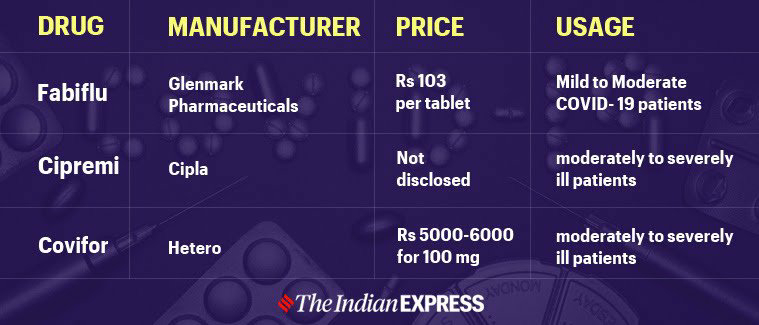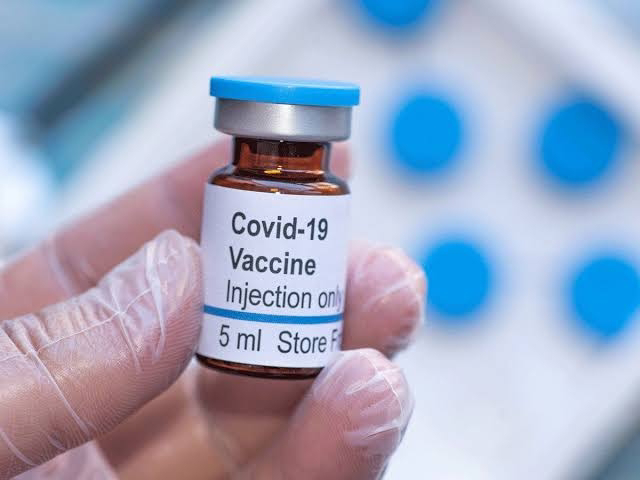Currently available Drugs to treat COVID 19
COVID 19 or coronavirus disease 2019 was first reported in Wuhan province of China in October 2019. The newly discovered disease is caused by SARS-COV2 which affects mostly the respiratory system in the body. This disease was declared pandemic by WHO in February 2020. The worst hit countries among all are USA, Brazil, India, etc. Various ongoing research are dedicated to find a vaccine against this virus and in absence of vaccine some antiviral drugs are considered best and safer options to treat the disease.
While there is no specific proven treatment for the novel coronavirus yet, patients are being administered different drugs that were approved for the treatment of other diseases
The drugs which are currently used are -
1. Remdesivir
Originally developed by US-based biopharma company Gilead Sciences, Remdesivir is an antiviral that was used for the treatment of Ebola and has been repurposed for treatment of Covid-19.
How Remdesivir works?
Remdesivir is designed to obstruct the viral replication of SARS-CoV-2. This is the stage when the virus creates copies of itself, followed endlessly by the copies creating copies of themselves.
Coronaviruses are RNA viruses and at the replication stage the key viral protein at play is an enzyme called RNA-dependent RNA polymerase (RdRp). Remdesivir mimics a part of the viral RNA and it inserts itself into the RNA strand during the replication stage. When attached, the drug prevents any further copying, leaving the RNA strand incomplete and unable to produce critical viral parts.
2. Favipiravir
Favipiravir is an antiviral given to inhibit viral replication. It is used as an anti-influenza drug. Originally it was manufactured by Japan’s Fujifilm Toyama Chemical Ltd.
How Favipiravir works?
Since the novel coronavirus is an RNA virus, studies have shown that favipiravir gets activated inside the cells and then gets incorporated into the viral RNA. It restricts the multiplication of the virus in the body of the host once it gets inside a host cell, reducing viral load.
Favipiravir has shown clinical improvement of up to 88 per cent in mild to moderate Covid-19 cases, an official statement said.
3. Dexamethasone
Dexamethasone is a generic steroid widely used in other diseases to reduce inflammation. The steroid medicine has been available as a generic for decades. It is used to treat a range of diseases, including rheumatism, asthma, allergies and even to help cancer patients better handle the nausea triggered by chemotherapy.
How Dexamethasone works?
Steroid drugs reduce inflammation, which sometimes develops in Covid-19 patients as the immune system overreacts to fight the infection. The UK-based RECOVERY trial results have shown dexamethasone reduces death by up to a third in Covid-19 patients on ventilator support, and by a fifth in patients receiving only oxygen.
Dexamethasone is categorised under corticosteroids, which closely mimic cortisol, the hormone naturally produced by the adrenal glands in humans.
4. Hydroxychloroquine
Hydroxychloroquine (HCQ) was first developed in India for the treatment of malaria. The drug is also a disease-modifying anti-rheumatic drug (DMARD), which helps in reducing swelling and pain in arthritis patients.
How does the drug work?
An article in The Lancet Global Health said Hydroxychloroquine shows antiviral activity in-vitro against coronaviruses, and specifically, SARS-CoV-2. At approved doses, the drug can prevent SARS-CoV-2 infection and ameliorate viral shedding.
5. Plasma therapy
Convalescent plasma therapy or CPT involves the transfusion of the blood plasma of a recovered patient into another patient. The procedure has been used for several diseases earlier, but its efficacy for Covid-19 is still under investigation. The therapy is meant for critical patients with low oxygen saturation levels, or those suffering a cytokine storm. As per the ICMR protocol, preference is given to those at risk of cytokine storm, extreme breathlessness with severe pneumonia.
How does the therapy work?
Convalescent plasma therapy seeks to make use of the antibodies developed in the recovered patient against the coronavirus. First, the plasma from such people is taken and is then injected in critically ill patients so that the antibodies are transferred and boost their fight against the virus.



Comments
Post a Comment